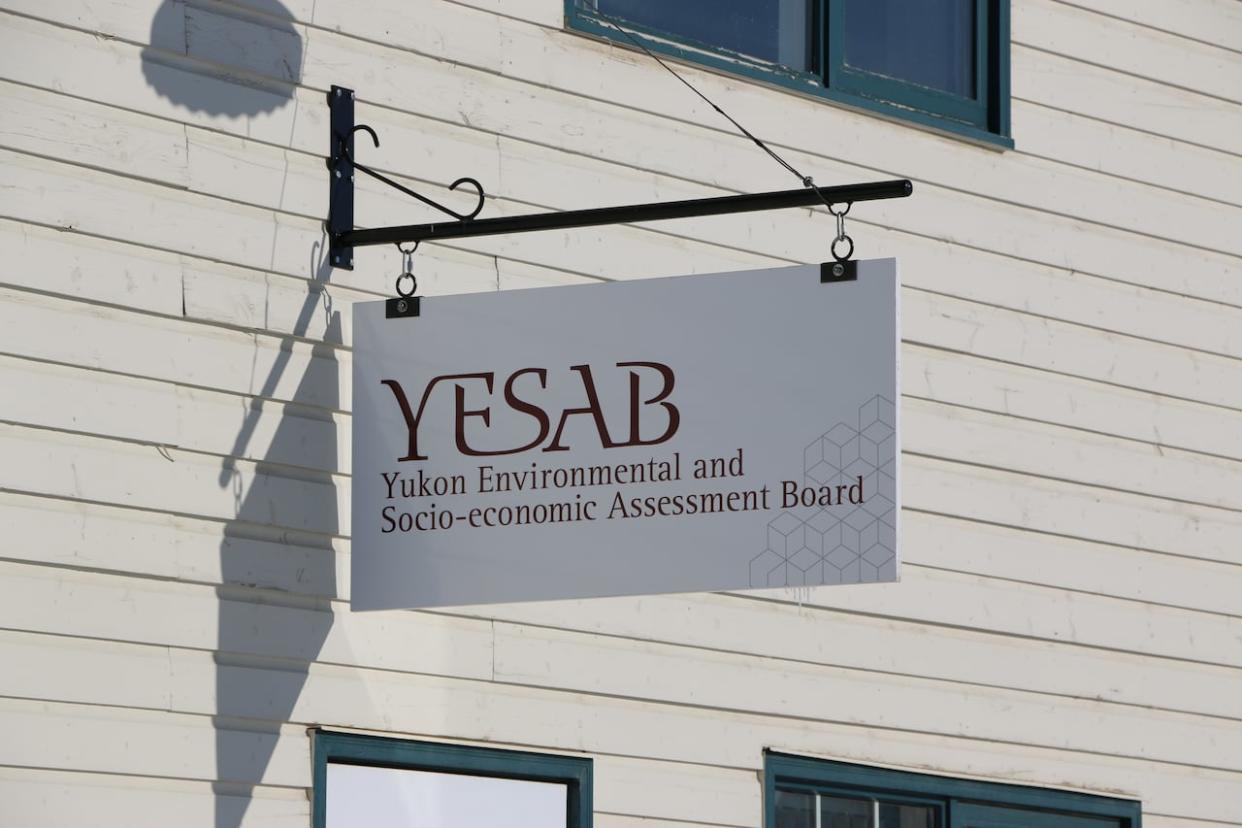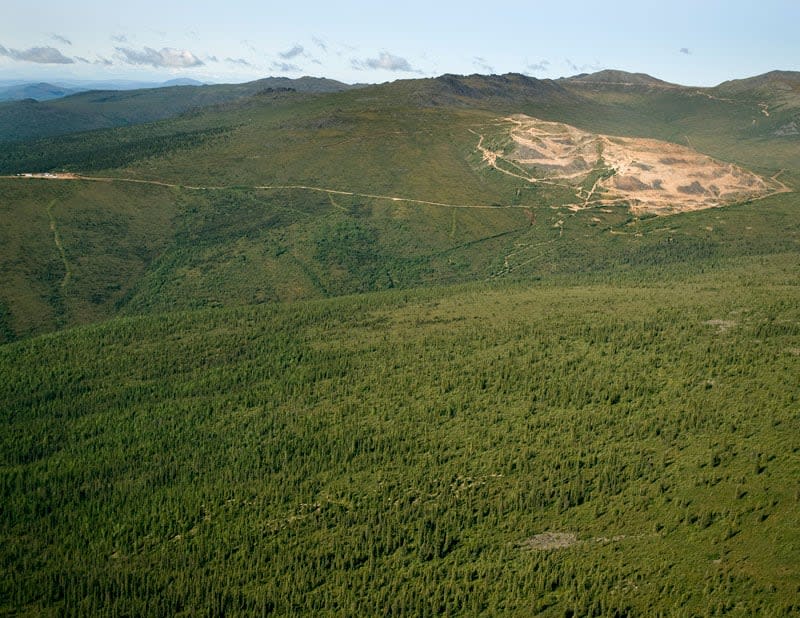Board recommends against proposed mining road in central Yukon

The Yukon Environmental and Socio-economic Assessment Board (YESAB) is recommending against a proposed mining road in central Yukon, citing concerns about potential adverse effects on caribou in the area.
TMM Goldcorp Inc. first submitted the proposal for the Casino-Rude Project in March 2023.
The road would be built in a forested area about 100 kilometres west of Pelly Crossing, Yukon, or 380 kilometres northwest of Whitehorse.
According to the project proposal, up to 2.7 kilometres of new, year-round road would be built and up to 11.1 kilometres of road would be upgraded, to support the company's current and future placer mining and exploration work.
The site lies on the traditional territory of Selkirk First Nation and White River First Nation.
Brad Farrow, who manages the Mayo branch of the YESAB office, said the board was concerned about several potential impacts on people and the environment, as the project would occur within the range of the Klaza and Fortymile caribou herds.
"Based off of the permanence of the project and the significance of effects that would be causing to ungulates in the area and the traditional land use that relates to those ungulates there, it was decided that the project should not proceed," he told CBC News.
The board also considered the presence of several rare plant species in the area, as well as moose.
Farrow says a key factor of the board's recommendation was the fact that its sees the road as a permanent development in the area.
While TMM Goldcorp Inc. committed in its proposal to reclaiming the road within six to seven years, YESAB noted that Yukon roads legally become highways if not reclaimed within two to three years.
"The difficulty with roads is, I put a road in, and as soon as you drive your four-wheeler down, that road immediately becomes a public road and I can no longer close it off and reclaim it," said Mike Prins, managing partner of TMM Goldcorp Inc.
While neither Selkirk First Nation (SFN) nor White River First Nation (WRFN) returned a request from CBC News for comment by deadline, representatives from both First Nation governments outlined their concerns in letters submitted to YESAB during its evaluation process.
"The project occurs within key habitat for moose and within the range of the Klaza and Fortymile caribou herds," wrote WRFN land coordinator Odin Miller, who expressed "particular concern" about caribou.
"There is already a high level of disturbance to harvesting activities with the amount of air and water traffic from the many existing mineral development and exploration projects in the vicinity."
SFN assessment officer Tanya Harrison echoed some of those concerns.
"Increasing activities and noise disturbs wildlife, which may result in species leaving the area, further infringing on SFN's harvesting rights and impacting culture and traditions," Harrison wrote in July.

TMM Goldcorp Inc.'s road project falls within the footprint of the proposed Casino mine property, pictured here. The site is approximately 380 kilometers northwest of Whitehorse. (Western Copper and Gold)
Both First Nations urged YESAB to consider the cumulative impact of development and industry in the area in its decision about the road.
The site is near a number of placer mining claims and within the footprint of the proposed Casino Mine, which is also waiting on a recommendation decision by YESAB. The board's panel review of that project began in 2016, and is ongoing.
'I can't build a road because of ungulates'
Sebastian Jones, a wildlife specialist with the Yukon Conservation Society, said YESAB's recommendation on TMM Goldcorp's proposed road is welcome news.
"It's a very encouraging recommendation," he said. "[YESAB] acknowledged the effects of a project such as this — which isn't particularly large, but combined with all of the other projects that have taken place in that area, the accumulation of effects is so large and so irreversible that the project shouldn't go ahead."
But Mike Prins of TMM Goldcorp doesn't see the recommendation as a victory for the environment. He said the reason the road was proposed in the first place was to improve energy efficiency.
"The original reason [for the road] was to tie that area to the [Yukon] River so I could haul fuel off the river instead of getting it there by airplane," he said. "Because right now I fly all my fuel in, so my carbon footprint is three times what it would be if I brought it by road."
He also sees the recommendation as moot if the massive Casino mine goes ahead.
"At the end of the day, this is in the middle of one of the largest industrial developments in the Yukon," Prins said. "And I'm being told I can't build a road because of ungulates. I find it very confusing."
TMM Goldcorp Inc. and Casino share overlapping rights to the same area.
"When the Casino project advances, my road will be discontinued because there'll be an all-weather road into the region to support the Casino mine," Prins said.
The Yukon Government and the federal Department of Fisheries and Oceans are set to issue a final decision on the proposed Casino-Rude road after reviewing YESAB's report.


